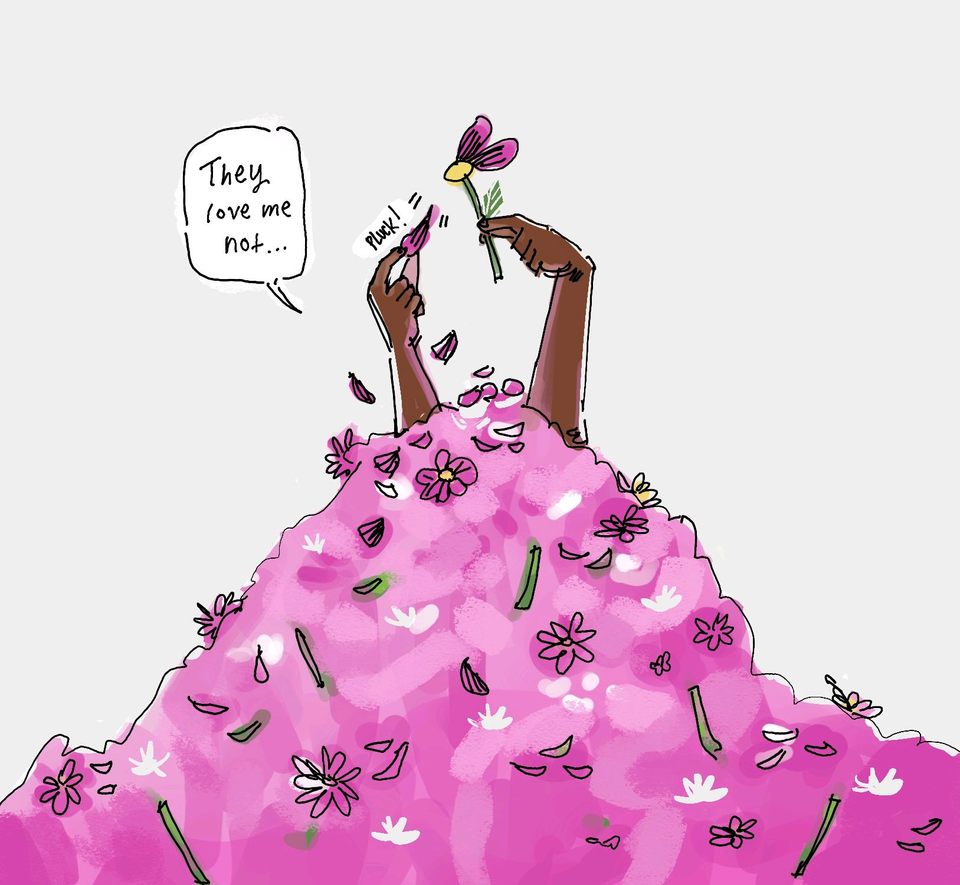Unrequited love is a painful yet universal experience caused by strong feelings for someone who does not or cannot reciprocate, such as a close friend who only sees your relationship as platonic. This type of feeling is often romanticized due to its idealized portrayal in the media — I myself am guilty of finding it so romantic when it comes to Mr. Darcy’s initial one-sided love for Elizabeth in Jane Austen’s novel “Pride and Prejudice.”

But beyond novels and films, the reality of unrequited love can feel much more agonizing. Whether you still think about an ex long after the breakup or you fell deeply in love with a friend and kept your feelings a secret, a part of us may never fully recover from that pain. It can be worse than rejection, which is a true heartbreak in itself.
But if we know we don’t need someone who can’t love us, why do we allow ourselves to pine after unattainable love?
One possible reason for this behavior might be an addiction to the rush of unexpected rewards when interacting with your crush. When rewards are unexpected, they cause more dopamine to be released. If you never know if the one you love is going to take two weeks or two minutes to answer, you’re more likely to forget their faults when they’re quicker to respond. It can lead to a reinforcing loop, strengthening our attachment to the targeted person.
Then there’s cognitive dissonance, which is just a fancy way of saying your brain hates holding two conflicting ideas at once — like when you know they don’t like you back, but you feel like they just might after they gave you a friendly nod from across the room. That’s when you start reading into things.
A brush of the hand becomes a significant moment and their two-second glance feels like something straight out of “Pride and Prejudice.” This makes it very easy to see this person through rose-tinted glasses and become a little too delusional.
Finally, reflecting on your attachment style can help you realize if you are more likely to fall for unrequited love. If you are an anxious type, you may crave affection but be petrified of being hurt. Being in love with someone who cannot reciprocate means you can remain in a distant relationship where you are not at risk of being left and where you don’t have to be vulnerable.
The emotional security of a pseudo-relationship is what makes it appealing. After all, how can they break your heart when you’re technically not with them in the first place? It’s a win-win — until it’s not.
Although unrequited love can fade through time, it is always beneficial to take steps to prevent suffering. One of the most efficient ones is radical acceptance.
If we want to move on from unrequited love, it is especially important to accept that not everyone will reciprocate our feelings. Take some time to reflect and look for patterns if you find yourself falling into this type of relationship frequently. Your connections with others will inevitably be affected by how you see yourself, so if you are struggling with the idea of being single, maybe it is time to start dating yourself for a while.
But if you really want to persist in unrequited love, aim higher than an emotionally unavailable frat boy who can’t be bothered to text back. Why not direct that passion toward someone who’s actually worth it — like the dreamy men in your favorite rom-coms or novels? At least Mr. Darcy won’t leave you on read, and fictional heartthrobs never disappoint.
















































































































